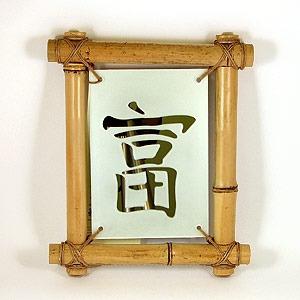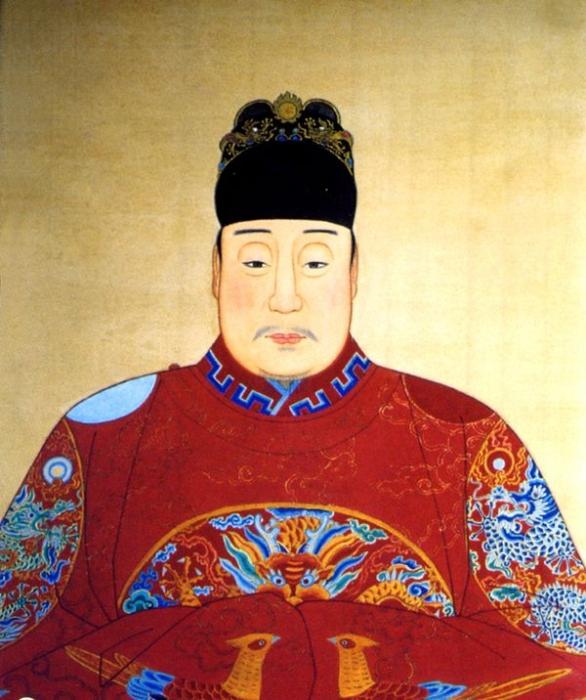The custom of the Chinese to hang a hieroglyph of wealth on their doors is shrouded in mystery. According to some legends, this tradition was introduced into the life of Jiang-Taigong, who was at the throne during the reign of the Zhou Dynasty. Other sources in the annals of China refer to the story of Zhu Yongzhan: he became the founder of the Ming Dynasty. The first story is more epic because it affects the relationship between the Chinese gods: Jiang-Taigong became a god, and called his wife the Goddess of Poverty, which she was very happy about. Then he ordered her to rule where there is no symbol of prosperity. With this belief, a tradition has come to keep poverty out of your home by hanging the hieroglyph of wealth on the door.

As you can see, the first story is implausible and looks more like a joke. The second tells about the completely natural behavior of the ruling man. Zhu Yongzhan once heard a crowd mocking a picture of a barefoot young girl living in Anhui province. The emperor did not understand why these people were laughing, and thought that they were making fun of his wife: she was from the same province. In fact, those people who laughed were simply not used to seeing a woman barefoot: it was customary to tightly bandage the girls feet from early childhood, putting on tight shoes on them. The leg was deformed and remained small - this was considered a sign of grace. The emperor ordered the hieroglyph of wealth to be hung on the door of those who were not in the crowd and executed the rest.

The symbol "Fu" is not just monetary wealth, it is happiness, success in career and family relationships, because the word "wealth" comes from the word "god" and indicates a favorable development not only in the monetary sphere, but also in other life aspects. There are many characters that are similar in meaning to the symbol "Fu". For example: a symbol of prosperity and prosperity - "Lou"; the symbol of money and material wealth is Tsai. If a person needs not only material security, but also the harmony of his inner world with the outside, then he must choose the character "Wealth". A photograph of this symbol is located on the top of the page.
On New Year's Eve, the Chinese often hang up or draw the hieroglyph “Fu” upside down: there is another legend on this subject. Once upon a time, when the Qing Dynasty ruled, before the New Year, the slave was told to hang a symbol of wealth on the door. The hieroglyph was set upside down due to the ignorance of the servant - this very angered the rich owner. Another servant, the chief administrator, stood up for the unfortunate man and said that he was not mistaken, because in China "wealth is upside down" means the same as "wealth has come." In this way, the servant was saved.
In the ancient
Chinese book "Historical Records" ("Shang Shu") there is a mention that the hieroglyph of wealth has five aspects that should be followed, like rules, rigorously and responsibly. The first is longevity, that is, a reverent attitude to one's health; the second is prosperity, which means caring for the material sphere of life; the third is peace, because you need to be in harmony not only with yourself, but also with people around you; fourth, dignity, because one must be able to maintain respect for oneself; and fifth, death without disease, in order to retreat with a calm soul into another world. Such a way of life can rightfully be considered the life of a rich, happy and successful person.